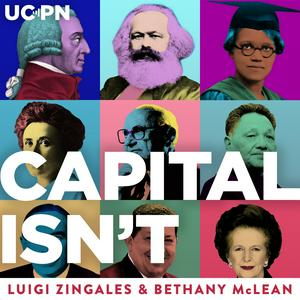How Democrats Forgot To Be Normal, with Joan Williams
Back in 2016, Joan Williams, distinguished professor of law (emerita) at UC Law San Francisco, wrote an essay for the Harvard Business Review on why President Donald Trump attracted so many non-college voters. It went viral with almost four million views, becoming the most-read article in the 90-year history of the publication.Williams’ new book, Outclassed: How the Left Lost the Working Class and How to Win Them Back, outlines how the seemingly common view that her fellow progressives must abandon their social causes to win back those non-college-educated voters is wrong. What is required, she argues, is a renewed understanding of class. She introduces her conceptualization of the “diploma divide,” or the gap between Americans with and without college degrees. Her worldview divides the electorate into three class-based groups: the college-educated, upper-class “Brahmin left”, the low-income working (middle) class, and the right-wing merchant class, which pushes for economic policies that benefit the rich. Her argument is that a new coalition between the latter two has shifted politics to the right.In this week’s Capitalisn’t episode, Luigi and Bethany invite Williams to discuss whether our society indeed breaks down so neatly. If it does, how does her breakdown help us understand recent electoral shifts and trends in populism and why the left is on the losing end of both? As she writes in her book and discusses in the episode, “[the Brahmin] left’s anger is coded as righteous. Why is non-elite anger discounted as “grievance?” Together, their conversation sheds light on how the left can win back voters without compromising on progressive values.Over the last four years, Capitalisn’t has interviewed conservative thinkers like Oren Cass, Patrick Deneen, and Sohrab Ahmari to understand how the political right developed a new platform after President Joe Biden’s victory in 2020. With this episode, we begin the same project with the left by asking: What could be the economic basis for a new progressive platform?Show Notes:Read an excerpt from Joan Williams' new book, “Outclassed: How the Left Lost the Working Class and How to Win Them Back,” out now at St. Martin's PressQuiz: “Are You in a Class Bubble?”What So Many People Don’t Get About the U.S. Working Class, by Joan Williams, Harvard Business Review, November 10, 2016


